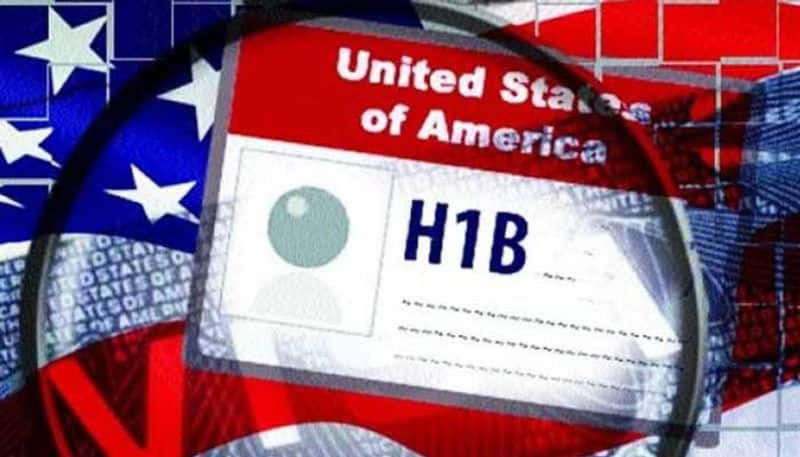Further, it's not merely the anxiousness to be able to set foot on the American soil. Once there, extension of the period of stay is another concern for these emigrant Indians.
Washington, DC/New Delhi: Bad news for Indians who wish to set foot on the American soil for work! H1-B visa applications have been piling up for a while without being processed as the rules that govern the acceptance of the applications seem to be arbitrarily decided by the authority concerned. Whatever rules these might be, they do not match what is clearly stated as the US government policy on immigrant workers.
There has been a "dramatic increase" in the number of H-1B visas being held up, a coalition of American employers representing top IT companies like Google, Facebook and Microsoft has said. It has alleged that the US immigration agency was "acting outside" of its own regulations.
The US Citizenship and Immigration Services (USCIS) had revealed that, as of on October 5, there were as many as 4,19,637 foreign nationals working in the US on H-1B visas. Of these, 3,09,986 were Indians. Clearly, with applications not getting cleared smoothly, hundreds of thousands of Indians are left in the lurch.
It has been constantly reported in the media that Indians in general and the Telugu-speaking people in particular with the American dream would be the worst affected lot due to the US administration's eccentricity in dealing with H1-B visa applications. It's not merely the anxiousness to be able to set foot on the American soil. Once there, extension of the period of stay is another concern.
The Deccan Chronicle had reported in January that the proposal in the Department of Homeland Security of the United States government to end the provision of granting extensions to H-1B visas holders waiting for their green cards (permanent residency in the United States), is giving anxious moments to 5,00,000-7,50,000 Indians.
Of these people, the largest chunk hail from the Telugu-speaking states of Telangana and Andhra Pradesh.
The H1B visa, popular among Indian IT companies and professionals, is a non-immigrant visa that allows US companies to employ foreign workers in speciality occupations that require theoretical or technical expertise. The technology companies depend on it to hire tens of thousands of employees each year from countries like India and China.
"We have observed three changes in H-1B adjudication practices under the current administration that seem to permeate most of the increased H-1B adjudication inconsistencies experienced by employers," Compete America said in a letter to the Secretary of Homeland Security Kirstjen Nielsen and Director of the United States Citizenship and Immigration Services (USCIS) Francis Cissna.
Expressing concerns over legal issues regarding the recent changes in adjudication standards for H-1B non-immigrant visa petitions at USCIS, the coalition -- Compete America -- said the agency's current approach to H-1B adjudications cannot be anticipated by either the statutory or regulatory text.
This leaves employers with a disruptive lack of clarity about the agency's practices, procedures, and policies.
This lack of certainty and consistency wreaks havoc among the nation's employers which are hiring high-skilled Americans and foreign-born professionals, it said in the letter dated November 1.
Compete America alleged that the USCIS appears to be "acting outside of its own regulations and the controlling statute" by requiring petitioners to comply with the agency's current view that a comparatively entry-level job, and corresponding wage level, cannot be a specialty occupation.
The specific field of study requirement for a specialty occupation means the job must necessitate completion of a single major or qualifying degree, and the requirement for an occupation to usually carry a degree prerequisite means a degree must always be needed.
In its letter, Compete America said that its members have reported "dramatic increases in the issuance of Requests for Evidence (RFEs) and denials regarding H-1B petitions for the last 18 months".
More recently they are experiencing a sharp increase in the issuance of Notices of Intent to Deny (NOIDs) and Notices of Intent to Revoke (NOIRs) concerning H-1B petitions.
The H1-B visa has an annual numerical limit cap of 65,000 visas each fiscal year as mandated by the Congress. The first 20,000 petitions filed on behalf of beneficiaries with a US master's degree or higher are exempt from the cap.
As an H-1B non-immigrant, the applicant may be admitted for a period of up to three years. The time period may be extended, but generally cannot go beyond a total of six years.
"These reported shifts in agency action have been perplexing to our coalition's members, especially because the agency's changes in approach were unannounced and unexplained and are not previewed in the regulations governing a qualifying H-1B specialty occupation that have been in effect since 1991," Compete America said.
According to Compete America, the USCIS has been denying H-1B petitions exclusively because an entry-level wage is applicable for the specific position, even though the occupation itself is clearly a specialty occupation.
"Nothing in the statute or regulations contemplates or suggests, much less states, that the USCIS could ever take the position that it per se excludes or disfavours entry-level jobs in an occupation, or young professionals working in jobs in an occupation, as qualifying for H-1B specialty occupation approval," it asserted.
Further, employers have reported repeated instances of the USCIS denying an H-1B petition on the basis that the degree held by the sponsored foreign professional is not within a single field of acceptable study for an occupation.
Employers are also reporting repeated instances of the USCIS denying H-1B petitions for occupations that may have some limited instances of jobs where a bachelor's degree or higher is not required, even when those occupations normally do require that level of education for the majority of roles, as contemplated by the statute, Compete America said.
With inputs from PTI
Last Updated Nov 9, 2018, 11:53 PM IST











![Salman Khan sets stage on fire for Anant Ambani, Radhika Merchant pre-wedding festivities [WATCH] ATG](https://static-ai.asianetnews.com/images/01hr1hh8y86gvb4kbqgnyhc0w0/whatsapp-image-2024-03-03-at-12-24-37-pm_100x60xt.jpg)
![Pregnant Deepika Padukone dances with Ranveer Singh at Anant Ambani, Radhika Merchant pre-wedding bash [WATCH] ATG](https://static-ai.asianetnews.com/images/01hr1ffyd3nzqzgm6ba0k87vr8/whatsapp-image-2024-03-03-at-11-45-35-am_100x60xt.jpg)



